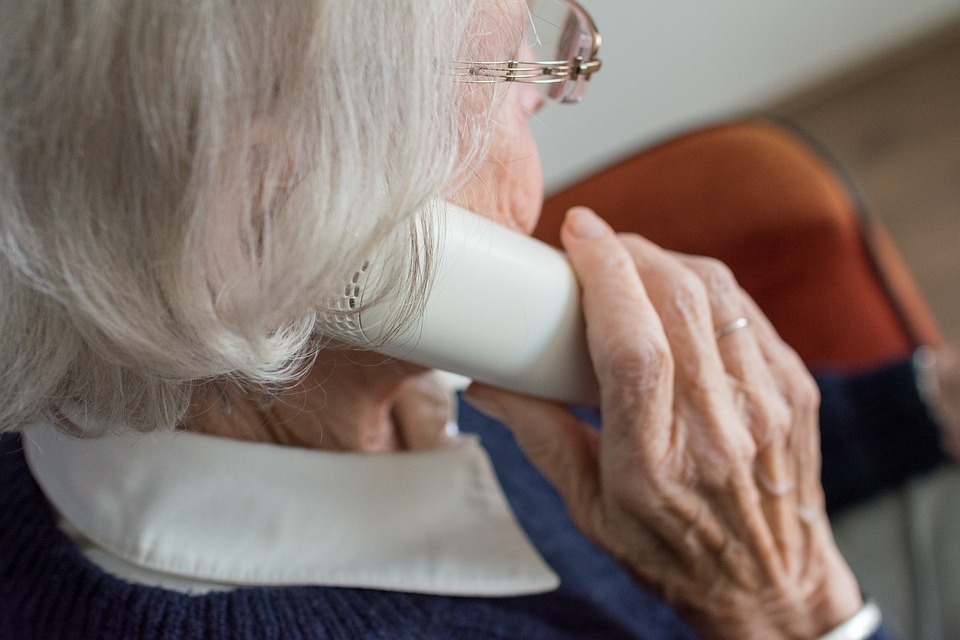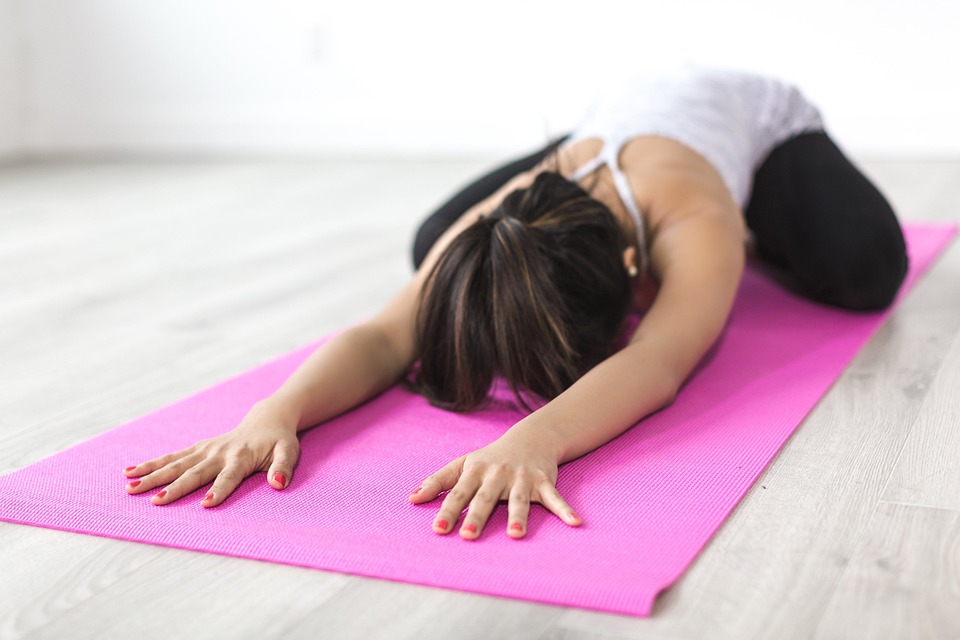
An important part of managing stress is having coping mechanisms in place to help you deal with stressful situations. Whether it’s taking a few deep breaths, going for a walk, or listening to soothing music, finding what works for you and incorporating it into your life can make a big difference.
There is no one-size-fits-all option when it comes to stress relief, however what works for one person might not work for another.
Stress relief strategies that work for you at home might not be possible when you’re at work or in the community. Therefore, it’s important to have a variety of stress relief tools available to you. That way, you can select a strategy that is most suitable for your current situation.
Try Guided Imagery
“Guided imagery is a way to relax your body and mind by picturing yourself in a peaceful setting. It’s like taking a mental vacation. You can imagine yourself in your happy place, like sitting on a beach, listening to the waves, smelling the ocean, and feeling the warm sand underneath you.”
You can do guided imagery with a recording where someone walks you through a peaceful scene, or you can do it yourself once you know how.
To relax, close your eyes and imagine yourself in a peaceful scene. Think about what you would see, hear, and feel. After a few minutes, open your eyes and return to the present.
Meditate
There are many benefits to meditation, both in the short term and long term. There are many different types of meditation, each with its own unique appeal.
You can develop a mantra to repeat in your head as you take deep, slow breaths, or you can take a few minutes to focus on the present moment. To do this, pay attention to what you see, hear, taste, touch, and smell.
Meditation and mindfulness can help reduce stress by keeping you in the present moment.
Practice Progressive Muscle Relaxation
Progressive muscle relaxation sounds like it would be a lot of work, but it actually involves relaxing all the muscles in your body, group by group.
I suggest you start by taking a few deep breaths.
Start by practice tightening and relaxing your forehead muscles, then move down to your toes.
By practicing, you will get better at noticing when your muscles are tense and learn how to relax them. You should feel more relaxed each time you practice.
Focus on Breathing
Changing the way you breathe can significantly reduce your stress levels. Simple breathing techniques can quickly calm your body and your mind.
The great thing about breathing exercises is that nobody else will know that you’re doing them, so you can do them anytime, anywhere – even in a stressful meeting or a crowded theater. By doing these exercises, you can help reduce your stress levels.
While there are many different breathing exercises, like karate breathing, a few simple ones include:
- Breathe in through your nose and watch your belly fill with air. Count slowly to three as you inhale. Hold for one second and then slowly breathe out through your nose as you count to three again.
- Breathe in through your nose and imagine that you’re inhaling peaceful, calm air. Imagine that air spreading throughout your body. As you exhale, imagine that you’re breathing out stress and tension.
Get a Hug from a Loved One
Ongoing studies have shown that hugging can provide an immediate boost of oxytocin, which is sometimes called the “cuddle hormone” or the “bonding hormone.” Oxytocin is linked with happiness, stress relief, and calming sensations. Physical touch, like hugging, can help relieve stress. Oxytocin, sometimes called the “cuddle hormone” or the “bonding hormone,” is linked with happiness, stress relief, and calming sensations and is released when we hug someone we care about.
Oxytocin, also known as the “cuddle hormone” is released when you hug someone. Oxytocin is associated with higher levels of happiness and lower levels of stress.
Oxytocin has the ability to lower blood pressure by reducing levels of the stress hormone norepinephrine. This can create a sense of relaxation in individuals.
Don’t be afraid to ask a loved one for a hug if you need it. It can help relieve stress for both of you and is one of the simplest forms of stress relief available.
Enjoy Aromatherapy
Aromatherapy can help relieve stress by making you feel more energized, relaxed, or present in the moment.
New research indicates that particular smells can influence brain activity and reduce stress hormones in the body.
You might enjoy using candles, diffusers, or body products that contain aromatherapy.
Create Artwork
Although it may have been easy to be creative when you were younger, it’s never too late to start again if you’ve lost touch with it.
A coloring book can be a great way to relax if you’re not into drawing or painting.
Coloring has been shown in research to have a meditative effect. One study found that people who colored complex geometric patterns had lower levels of anxiety, making it a good way to reduce stress.
Eat a Balanced Diet
A bad diet can make you more sensitive to stress. Eating emotionally and eating lots of high-fat, sugary foods can make you feel better for a little while, but it makes your long-term stress worse.
Refined carbs can cause a spike in blood sugar which can lead to stress and anxiety.
Eating a healthy diet can help you manage stress in the long term. Foods like eggs, avocado, and walnuts can help regulate your mood and energy levels.
Develop a Positive Self-Talk Habit
What you say to yourself matters. If you’re constantly thinking negative thoughts, you’ll stress yourself out. Try to be more positive.
When you are being hard on yourself it is important to learn to talk to yourself in a more realistic and compassionate way. Rather than putting yourself down or doubting your ability to succeed, reply to yourself with something kinder.
If you talk to yourself in a positive way, it can help you have a healthier outlook. If you talk to yourself in a optimistic and compassionate way, it can help you manage your emotions and take positive action.
Express Gratitude
Being grateful for the good things in life helps you recognize all the things you have to be thankful for.
When you are grateful for what you have, it reminds you of all of the other resources you have to deal with stress. This can make you feel more powerful.
The studies suggest that people who express gratitude lead healthier lives with less stress.
Be grateful every day by sitting around the dinner table with your family and identifying what you’re grateful for or by writing down three things you’re grateful for in a gratitude journal.
Exercise Regularly
Exercise is a great way to relieve stress because it increases endorphins, which leads to the “runner’s high.”
The hormones that are produced by your brain to alleviate pain and reduce stress are known as endorphins. Additionally, exercise has been shown to decrease the levels of stress hormones like cortisol and adrenaline.
Any kind of cardio or aerobic exercise is recommended by Hagopian, such as walking, cycling, or dancing. What matters most is just getting some physical activity and doing something you enjoy.
Beginner exercisers should aim for 150 minutes of moderate exercise or 75 minutes of vigorous exercise a week. To start, Hagopian advises taking 10 to 20-minute walks three times a week and gradually increasing the intensity and duration of exercise sessions.
A 2007 study looked at how well elite athletes and healthy non-athletes coped with stress. They did the Trier Social Stress Test on both days. This is a standard way of inducing stress in studies. The athletes had the test two days after a competition, when they were likely to be calm. And they had it two days before a competition, when they would be feeling anxious. The study found that the athletes’ stress responses were the same on both days. In other words, their bodies handled stress just as well whether they were feeling calm or anxious.
The study found that while both the elite athletes and the healthy non-athletes had increased levels of cortisol and heart rate, the increase was significantly less for the elite athletes. The athletes also reported being calmer and in a better mood.
Get More Sleep
If you’ve ever tried to function on just a few hours of sleep, you know it’s harder to deal with anything when you’re sleep deprived, including stress. In fact, 21% of adults report feeling more stressed when they don’t get enough sleep.
Although adults typically need seven to nine hours of sleep, many people find it harder to fall asleep when they are stressed.
There are some basic ways to improve sleep, including:
- Establish a sleep routine. It’s important to practice good sleep hygiene, which means going to bed and waking up at around the same time every day. This helps your internal clock, called your circadian rhythm, stay in sync so that your body is ready for sleep at your set bedtime.
- Turn off devices. Scrolling through our phones or watching TV can be stimulating, which makes it harder to fall asleep. Hagopian suggests setting a specific time when you turn off your devices and switch to more calming activities.
- Have a calming, pre-bedtime ritual. This can be a warm bath, reading a book, listening to music, drinking chamomile tea, or anything that will calm you, says Hagopian.
Laugh
When it comes to stress, one of the best things you can do is laugh. Laughing triggers immediate changes in your body that help to counteract the stress response.
Laughing has many benefits for your physical health. It takes in more oxygen-rich air, which stimulates your heart, lungs, and muscles. It also increases your release of endorphins, improves circulation, and helps you relax your muscles, which are often tense when you are stressed.
Hagopian says it doesn’t really matter what makes you laugh, as long as you try finding ways to lift your mood when you’re feeling stressed. Here are some easy ways to induce laughter:
- Watch a funny TV show or movie that you enjoy
- Listen to a favorite comedy podcast or standup routine
- Read a humorous book or satirical article
- Talk to friends or family members who make you laugh
Limit Caffeine
If you consume the right amount of caffeine, it will help to keep you energetic throughout the day. However, if you have too much caffeine, it can lead to feeling stressed and anxious, and can even cause problems with sleeping and heart rhythm.
Some people can drink a lot of caffeine without experiencing any adverse effects, while others are moresensitive to it. There is no set amount of caffeine that is considered “too much” because it varies from person to person. Some people can drink a lot of caffeine without experiencing any negative effects, while others are more sensitive to it and can’t handle as much.
The National Institutes of Health suggests that people consume no more than 400 mg of caffeine per day. For reference, an 8-ounce cup of coffee may have anywhere from 95 to 200 mg of caffeine, while the same-sized cup of tea may contain 14 to 60 mg.
To consume less caffeine, you can drink decaffeinated coffee, herbal tea, fruit juices, or water instead.
Journal Weekly
Journaling can help relieve stress by providing a way to express thoughts and feelings. It is affordable and accessible, making it a convenient option for many people.
A small study in 2018 found that journaling for 15 minutes three days a week improved participants’ anxiety and resilience after one month.
Writing in a journal on a regular basis may help to lessen stress as it gives you a chance to clear your head, let go of negative thoughts and emotions, and keep things in perspective.
Avoid Alcohol
Even though alcohol might be your go-to when you’re stressed, it can actually make your stress worse by causing your body to produce more of the stress hormone cortisol.
According to Forrest Talley, a clinical psychologist who has worked at the University of California, Davis Medical Center, avoiding alcohol can help reset your nervous system to a healthier level, and can reduce the number of regrettable moments that you experience.
Try a non-alcoholic drink or a soothing herbal tea instead of drinking alcohol when you’re stressed out.
Listen to Music
Music has a stress-reducing effect on the heart, according to a 2018 review of existing research.
Researchers at Stanford University suggested in 2006 that listening to music may change brain functioning to the same extent as taking medication. Music with a slow beat slows down our brain waves that are connected to meditative states. A faster rhythm may help us become more alert and better able to concentrate.
“Additionally, when someone listens to calming music just prior to bedtime, it can improve the quality of their sleep,” Talley says. “Better sleep helps relieve stress and anxiety.”
Care for a Pet
Since they can sense when we’re feeling down, they can be a great source of comfort. Pets can help us lower our stress levels by providing us with companionship and unconditional love. They can sense when we’re feeling down and be a great source of comfort.
A 2012 meta-analysis of 69 studies on human-animal interactions showed that pet owners have lower levels of cortisol and higher levels of the “feel-good” hormone dopamine.
Research suggests that looking after a dog may improve your levels of the hormone oxytocin, which can result in increased trust and feelings of connection and calm, Talley says.
Connect with Loved Ones
When you are feeling stressed, talking to your friends and family can help. Research found that people without much social support are more reactive to stress, exhibiting increased heart rates, blood pressure, and hormone levels.
The 2011 study found that kids who had a best friend nearby coped with stress better than those who didn’t. The study had kids write in a journal multiple times a day to record their experiences, and tested cortisol levels in their saliva.














